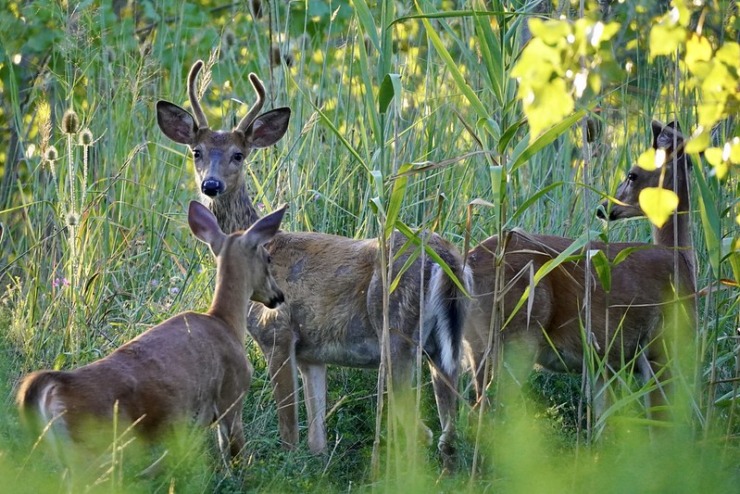Poet-a-Day: Meet Barbara Crooker
I met Barbara Crooker at a writing festival back in 2008, when I attended her workshop on ekphrastic poetry, “Ecstatic Ekphrastic.” Hers was the first session of the weekend, and as I walked into a room full of people I didn’t know, I felt a bit untethered. Within moments, though, she got me thinking, dreaming, and writing about art.
That energy lasted for days. Spreading the joys of poetry is Crooker’s gift. Since then, we’ve become mutual fans and friends, having crossed paths at a number of conferences and festivals and presenting our work together. So when I put out the call for acrostic poems, and the award-winning poet sent me this gem, I was thrilled.
Here are the first several lines (and couple of words) of the acrostic. Want to read the rest? You will in How to Write a Form Poem!
Crepuscule (excerpt)
Dim half light, the orchard
exhaling its last breath, as
evening makes all colors equal—
reds, blues, greens, now shades of gray.
And here come the deer
tiptoeing down the trail, hesitant…
—Barbara Crooker
Here’s what the poet has to say about her poem.
Tania Runyan (TR): Tell me a little about the origin story of “Crepuscule.”
Barbara Crooker (BC): I stumbled across an acrostic poem by Paula Bohince who used this form and thought I’d like to try my hand at it. That’s one of the ways I work in form: see a poem I admire, and then attempt to do one myself. I like a challenge! Often I fail, but—
Some years ago, I was in a symposium at the West Chester Poetry Conference on Forgotten Women Formalists, where I coined the term “semi-formalist:” someone who works in form, but only some of the time.
It’s my contention that all of my formal work, even (or especially) the failed attempts, informs my free verse, especially in areas of rhythm, rhyme, and word choice. The setting of this poem is simply my backyard, seen through careful observation, but because the poem happened at twilight, I thought “crepuscule” was appropriate, the opposite of an aubade.
TR: Do you decide to write in a particular form first, and let that decision shape the poem? Or do you come up with an idea for a poem and choose a form to fit it?
BC: Sometimes, I start a poem one way (say free verse), then I find the poem demands to be something else (say terza rima). And sometimes, “assignments” come to me—I’ve submitted a batch to Mezzo Cammin, a journal of formal verse by women. Kim Bridgford, the editor, took two, but wanted three (or more). I didn’t have anything else to send her, so I looked at what I had in draft, and worked them into sonnets, loosely rhymed couplets, and a few I forget now. (Yes, she took them.) I don’t think this would work for something like a sestina; there, I spend a lot of time choosing those six end words.
Another thing, about “assignments”: I had a writing residency at the Tyrone Guthrie Centre, in Ireland. You’re supposed to come to international residencies with a project in mind; I knew I wanted to write a series of meditations on The Book of Kells, but also knew I needed to do something more. So I came up with the assignment of writing some glosas, which begin with a four line stanza from someone else’s poem that are used as the end line for four ten line stanzas, and decided I would use said stanzas from Irish writers. I found this form to be difficult and challenging, but was very happy with the end results.
TR: What do you hope poets can learn from a book like How to Write a Form Poem?
BC: I think we all have a lot to learn on our writing path, and writing in form is an excellent way to stretch your writing muscles, even if you end up discarding what you’ve written in the end. Or, you might surprise yourself, and fall in love, say, with the sonnet or the villanelle.
About Barbara Crooker
Barbara Crooker is a poetry editor for Italian-Americana, and author of twelve chapbooks and nine full-length books of poetry. Some Glad Morning, (Pitt Poetry Series, University of Pittsburgh Poetry Press, 2019) is the latest. Her awards include the WB Yeats Society of New York Award, the Thomas Merton Poetry of the Sacred Award, and three Pennsylvania Council on the Arts Creative Writing Fellowships. Her work appears in a variety of literary journals and anthologies, including The Valparaiso Poetry Review, The Chariton Poetry Review, Green Mountains Review, Tar River Poetry Review, The Hollins Critic, The Denver Quarterly, Christianity and Literature, The American Poetry Journal, Passages North, Nimrod, Common Wealth: Contemporary Poets on Pennsylvania, The Bedford Introduction to Literature, Nasty Women: An Unapologetic Anthology of Subversive Verse, and has been read on the ABC, the BBC, The Writer’s Almanac, The Slowdown, and featured on Kwame Dawes’s American Life in Poetry.
Hear Barbara read “Crepuscule”
(go to 6:45 to hear Barbara read)
Photo by Rachel Kramer, Creative Commons, via Flickr. Post by Tania Runyan.
Browse more Poet-a-Day
Browse 50 States of Generosity
Check out The Yellow Wall-paper Graphic Novel
BUY ‘HOW TO WRITE A FORM POEM’ NOW!
- Flowers of California: California Poppy - December 8, 2022
- Flowers of California: Lily of the Nile - October 13, 2022
- Flowers of California: Crape Myrtle - October 5, 2022



Bethany Rohde says
“Semi-formalist” is such a fun way of putting it.
Freedom in form, freedom & form. 🙂
Thanks for sharing this interview. I’ve enjoyed Barbara Crooker’s poetry collections over the last few years and love hearing about her process. And her idea of taking older drafts and crafting them into sonnets? Brilliant.